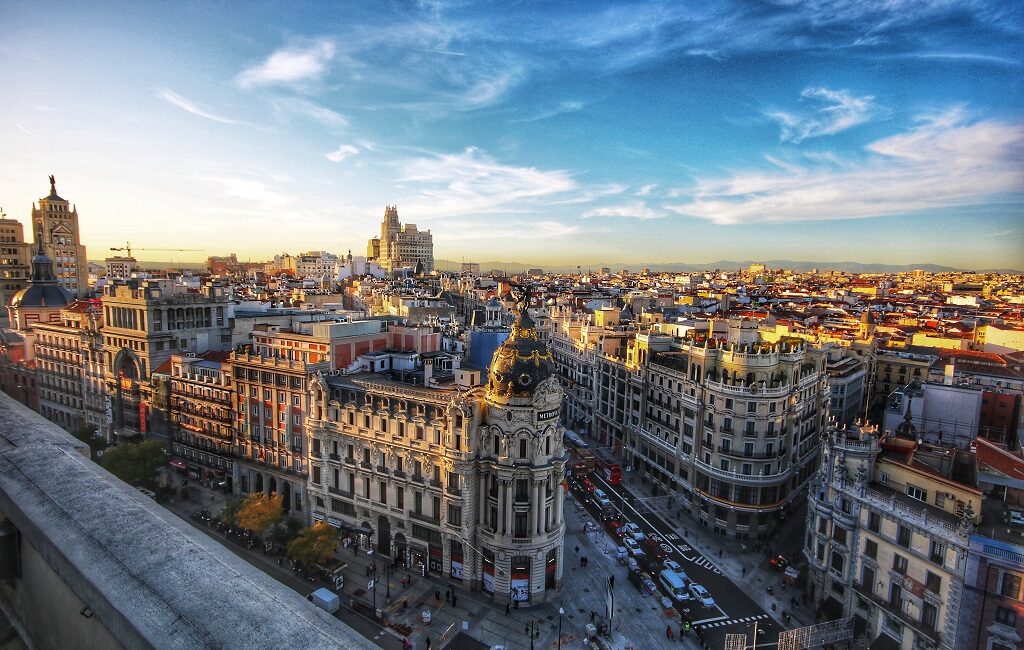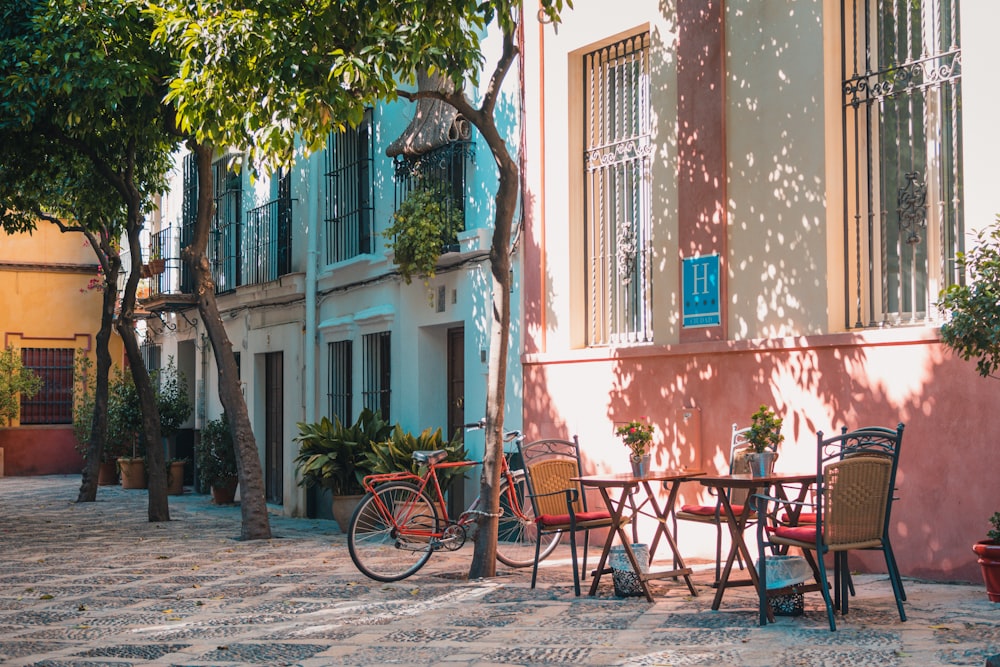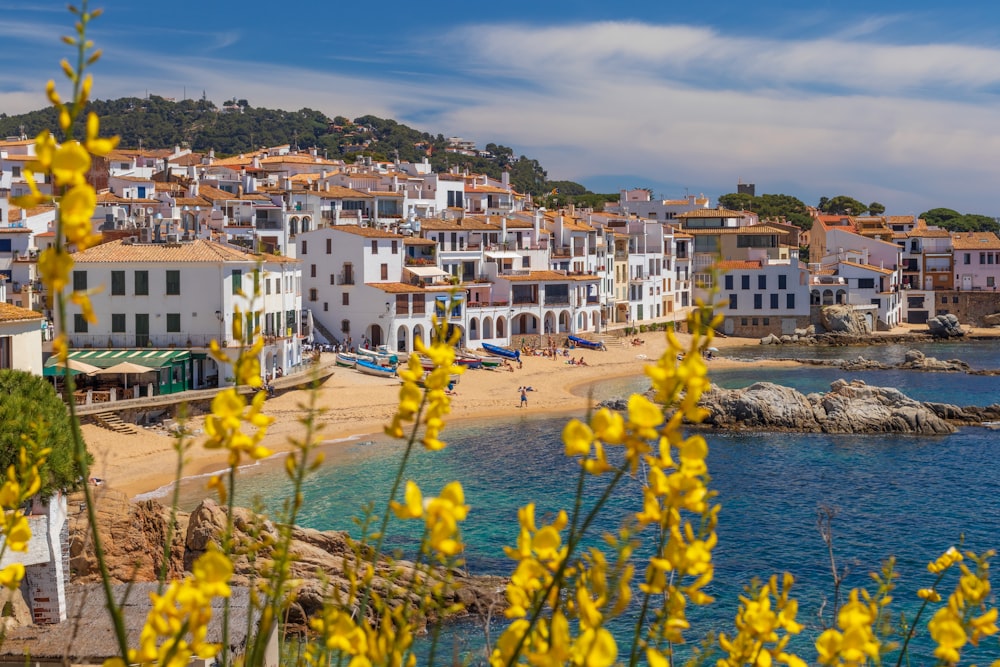Dreaming of swapping grey British skies for sun-drenched Spanish landscapes? Moving to Spain offers an irresistible lifestyle transformation that attracts over 300,000 British expats.
This Mediterranean paradise promises not just sunshine, but a complete reimagining of daily life – where work-life balance isn’t just a concept, but a lived reality.
The country’s appeal goes far beyond beautiful beaches. With a cost of living 30-40% cheaper than the UK, exceptional healthcare ranked 7th globally, and a community-focused culture, Spain offers more than just a relocation – it promises a complete lifestyle upgrade. From the vibrant expat communities to the legendary work-life balance, moving to Spain means embracing a lifestyle where enjoying life isn’t just encouraged, it’s celebrated
This article will guide you with our top tips to help you decide to take the leap. We’ll talk about the cost of living, the beautiful cities, amazing food, and even the much-considered pros and cons of living in Spain.
1. Research About The Pros And Cons About Living In Spain
Pro
The Cost Of Living Is Low
Spain’s cost of living is not that high compared to other European countries. When you factor in the high quality of living, life in Spain makes for an excellent experience.
The Spanish Culture Is Rich And Diverse
Spain’s history dates back a thousand years. Its exploration of the world is one of the earliest. That is also why so many countries and languages in the world have Spanish influences. The history is evident today in the buildings, festivals, and holidays.
The Cities Are Simply Gorgeous
A lot of centuries-old buildings survive to this day. In some areas, even in major cities, you will find pockets of history waiting to be rediscovered. In more fortunate places in Granada, whole palaces are still alive for people to enjoy more than 700 years later.
Con
There Might Be A Language Barrier
Spaniards speak Spanish, but other official languages are spoken in certain cities, such as Catalan, Castilian, and Basque, among others. You might find it difficult to communicate with people speaking their local language. Learning Spanish and improving your language skills will be a great benefit.
2. Pick The Right City To Live In That Matches Your Lifestyle
Do you want to be a short stroll’s distance to the beach? Do you like living near ancient relics? How about the vibrant nightlife? Do you like to live in a city set at the foot of a mountain?
Spain’s many cities offer different strengths and personalities. Choosing where to live and call home is a very important decision. It’s also best to factor in the cost of living in these cities.
Here are some of Spain’s most popular cities and why you might consider moving there.
Madrid is the Capital city of Spain and is a cultural and economic centre. If you want to be close to the action of a major city, this is your go-to city.
Marbella is a beautiful city that looks into the Mediterranean sea. If you want to live in a smaller city where life is more laid back and the beach is just a few minutes walk away, pack your bags and head here.
Valencia is similar to Marbella as it also looks into the Mediterranean sea. But being the third-most populated municipality in the country, Valencia is for someone who likes the charms of Marbella and the fast pace of the big city.
Barcelona is the capital of the Catalonia region of Spain and is the country’s second-largest city in terms of population. It is a bustling metropolis perfect for those who want to live the city life.
Granada is a city near the Sierra Nevada mountains in southern Spain. It is also the province’s capital that shares its name, Granada. The city is smaller with a more laid-back lifestyle, but it has a rich history and some of the country’s best historical sites.
3. Learn As Much As You Can About The Cost Of Living In The City You Choose
As with many developed countries, there are expensive and cheaper cities to choose from. Doing ample research could mean saving up to 500 EUR in rent for the same small one-bedroom apartment. Aside from the relative cost of a city, where you live in that city will also drastically change your monthly cost of living, especially when it comes to renting.
The cost of living in larger cities is also equally high. In Madrid and Barcelona, the average cost of living is around 700 EUR before rent. A one-bedroom apartment will then fetch anywhere between 600 to 1300 EUR.
The average cost of living in the cheaper cities is around 600 EUR. However, rent for an apartment good for a single person can go as low as 350 EUR.
So, choosing where to live makes a huge difference in what you need to budget for, so always keep that in mind!
4. Keep An Eye On Spain’s Top Industries And Secure A Job To Be Able To Stay Long Term
If you plan on staying in Spain long-term, it is best to get a Job. If you have a work permit or a por cuenta ajena, it will allow you to get a working visa or a visado de residencia y trabajo.
This will allow you to stay in Spain longer and build your life there. To help you out, these are some of the most booming industries and job markets in Spain today.
- Aerospace
- Pharmaceuticals
- Education – Teaching English
- Web Technologies
- Agriculture
- Tourism
5. Be Sure You Set Up Your Número De Identidad De Extranjero
Número De Identidad De Extranjero (NIE) directly translates to Number Identification Foreigner. All expats must acquire an NIE, and it is an essential requirement to be able to live in Spain.
This number is used in many important documents and transactions. It is used in major purchases, opening bank accounts, paying taxes, attending university, applying for a driver’s licence, and so much more. If you plan on living in Spain as more than just a week-long tourist, you need an NIE.
Luckily, applying for one is not that hard and can be done online, so you won’t have any issues.
6. You Can Pursue A Higher Education In One Of Spain’s Excellent Universities For More Job Opportunities
Whether you want to master your current industry or penetrate a new field, pursuing a higher education might be a good idea. Spain’s educational system is excellent, and you can choose from several universities and colleges to up-skill.
- University of Barcelona
- Autonomous University of Barcelona
- Autonomous University of Madrid
- University of Valencia
- University of Granada
- Complutense University of Madrid
7. Observe The Little Cultural Details And Social Etiquette
When moving to a new country, there will always be a little bit of a culture shock. To help you out with some social interactions, here are some tips you might want to take note of.
- Tipping in Spain is not compulsory. You can even leave the coins you receive as change, which can serve the gratuity. If you especially like the service, you may leave more.
- People might mention Pagar a pachas when going out or paying by half. This means people will divide the bill equally, and everyone gets to pitch in the same amount. This type of arrangement is particularly popular with young people.
- Being late isn’t that much of a big deal. You’ll probably hear someone just say “no pasa nada”, which loosely translates to “don’t worry about it” and that’ll be the end of it. However, if the event is very important or it can’t start without you, try to be on time.
- Eating times are a bit late. La Comida, the main meal, is usually around 2 pm, although it can sometimes go as late as 4 pm. La Cena, or dinner, won’t even start before 9 pm. If it’s the weekend, expect the food to be served even later.
8. Always Treat Yourself To A Well Deserved Vacation In These Top Tourist Spots
Spain is home to the Pyrenees, Sierra Nevada, and Cordillera Cantabria mountain ranges, to name a few. It also has a 1,600-kilometre coastline into the pristine waters of the Mediterranean sea.
Spain has dozens of top go-to destinations between the sea and the mountains that you should not miss. Treat yourself to a regular trip, and don’t be a stranger to this beautiful country.
Here are some of the best spots we recommend you visit asap:
Alhambra and Generalife is a 13th-century palace complex in the city of Granada. It is one of the most famous and well-preserved examples of Islamic Architecture from the historical time period.
Sagrada Familia is a cathedral in the heart of Barcelona and one of Spain’s most famous buildings.
Guggenheim Museum is a museum of modern and contemporary art in Bilbao
Ciudad de las Artes y las Ciencias is a science complex that’s full of exhibits, art displays, and an aquarium in Valencia.
Gran Canaria is an island in the Canary Islands. It is home to gorgeous pristine waters that are perfect for any beach lover.
9. Mark You Calendars For These Events And Get To Know The Spanish Culture Better
Spain has more than a thousand years of colourful history. It has carved for itself a very distinct culture and traditions it strongly upholds throughout the years.
If you want to know the Spanish people better, there is no better way to take to the streets and be part of their festivals and holidays. It gives you a glimpse of what is important to them as a society. Hopefully, it will be a gateway for you to find common ground and connect with your new neighbours.
Here are the top festivals and celebrations you should mark on your calendar!
Semana Santa is observed all over Spain. Catholicism is a huge part of life in Spain, and the Holy Week is observed with reverence every year.
Running of the Bulls might be controversial, but the excitement keeps people returning to the streets running.
Tomatina Tomato Fight is a festival all in the spirit of fun. Every year in Valencia, thousands of people battle it out in the streets with tomatoes painting the town red.
Carnival is the celebration just before lent. Cities all over Spain will explode with colour, parades, costumes, and so much more.
Festes de la Merce in Barcelona is exciting, albeit a little terrifying, as you see people go high up in the air forming human towers. Cheer for your favourite teams, and enjoy the fireworks, costumes, and performances.
10. Don’t Forget To Taste Spain’s Signature Dishes
Spain has great food. It is the world’s top producer of olive oil and thus features it prominently in its recipes. Certain herbs like parsley, thyme, rosemary, and garlic are very common. It shapes most of the flavours that define Spanish food.
Given the country’s bountiful agriculture, they use all sorts of meat, seafood, and vegetables. If you are lucky enough to settle in Spain, check out these table staples:
Gazpacho is a cold soup made from tomatoes, olive oil, and herbs. Gazpacho is a must-have during the hot summer months for, people to enjoy.
Paella is a rice-based dish with chicken and rabbit with saffron that gives it the signature golden colour. The dish is said to originate from Valencia.
Gambas al ajillo is garlic with shrimp in olive oil. Its simplicity and amazing flavour are why Gambas can be found everywhere and enjoyed by everyone.
Jamón, or cured pork, is a favourite in Spain. If you want to splurge a little, you can try the Jamón ibérico, a special type of Jamón made from specifically bred Black Iberian pigs. One leg of this ham can go for thousands of dollars.
11. Connect With Local Expat Communities
According to research conducted in 2020, at least 7 million people in Spain are foreigners, with almost 70% coming from non-European Union countries.
Spain is a favourite destination for many expats. If you relocate there, getting in touch with people in the same boat would not be difficult.
In most big cities, there will be events, gatherings, and even online groups you can join to meet new people and make friends. Social media websites like Facebook or even expat-specific communities on Reddit are available. There are forums where you can ask questions, have conversations, and maybe even organise a meet-up yourself!
12. Make A Relocation Checklist And Keep It Updated
Making a “Checklist” is a must when going through a huge project. In this case, moving to a new country. You can plan and track all of the little details regarding the move. You can categorise them, tag them for urgency, and apply a timeline indicating which tasks need to be done, when, and more.
For starters, here are some categories you can use:
- Important documents (Visa, Work Permits, Passports, etc.)
- Moving materials (Luggage, Boxes, Tape, Markers for labels)
- Items You won’t Bring (Sell or Donate)
- Contacts
- Cash and budget in the correct currency
13. Engage With A Professional Moving Company
Lastly, to fully enjoy the travel experience, engage with a trusted moving company to take care of your belongings like Santa Fe Relocation. Whether moving locally or relocating internationally, Santa Fe has had years of experience helping people with their travels.
By engaging with Santa Fe, you can travel worry-free and focus on relaxing during the flight. You don’t need to deal with carrying heavy luggage on your moving trip to Spain!
Conclusion On Moving To Spain
There are many reasons why moving to Spain is a great idea. It’s a historically rich country with a vibrant culture and wonderful people. Its quality of life is high, but the cost of living won’t break your bank account.
It is beautiful in its natural resources as well as in its modern cities. The architecture of its buildings is gorgeous and will make it seem like you turned back in time. The Spanish people are warm and family-oriented, and it will be easy for you to make new friends in your new life.
If all of that sounds good to you, then deciding to relocate to Spain is the way to go!
If you want more guides on moving to other countries or details about the cities of Spain, check out our articles about Granada, Barcelona, Madrid, and Marbella.
Frequently Asked Questions About Moving To Spain
How Do You Become A Spanish Citizen?
Becoming a Spanish Citizen depends largely on what country you come from. If you come from a non-European Union country but have legally lived in Spain for five years, you can apply for an EU long-term residence permit. But that is just the first step, and it is best to check the official immigration website in Spain to proceed.
Does Spain Have A Royal Family?
Yes, the current monarchs are King Felipe VI and Queen Letizia. They reside in the Royal Palace of Madrid along with their three children.
Is The Weather In Spain Good?
Yes. The climate in Spain is very mild, and although seasonal contrasts still occur, the temperature never really goes into the extreme hot or cold. Thanks to the Mediterranean sea, Spain enjoys an oceanic climate helping its weather to remain mild and manageable all year through.
What’s The Best Way To Engage With Santa Fe Relocation For A Quote On My Move?
You can simply visit the website and use the online tool. However, it is best to either email or call and talk with one of our representatives so that they may provide a more tailored plan for your needs.






